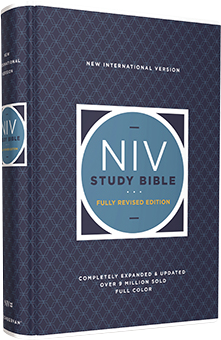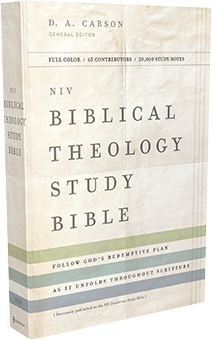
Ecclesiastes: Wisdom on Our Human Experience
The book of Ecclesiastes takes a hard look at the human experience and offers wise advice on how to live meaningfully, purposefully and joyfully. The author reflects on the experience of life and sees a busy human anthill in mad pursuit of many things, trying now this, now that, laboring away as if by dint of effort humans could master the world, lay bare its deepest secrets, change its fundamental structures, burst through the bounds of human limitations to control their destiny and achieve a state of secure and lasting happiness. In short, he sees people laboring at life with an overblown conception of human powers and consequently pursuing unrealistic hopes and aspirations.
Through his reflections, the author concludes that human life is “meaningless”, its efforts all futile. And yet, what begins with “Meaningless! Meaningless!” (Ecclesiastes 1:2) ends with “Remember your Creator” (12:1) and “Fear God and keep his commandments” (12:13) by the end of the book. The author offers up much wisdom along the way.
Wisdom About the Human Endeavor
1. Humans cannot by all their striving achieve anything of ultimate or enduring significance. Nothing appears to be going anywhere (1:5–11), and people cannot by all their efforts break out of this caged treadmill (1:2–4; 2:1–11). They cannot fundamentally change anything (1:12–15; 6:10; 7:13) and hence, they often toil foolishly (4:4,7–8; 5:10–17; 6:7–9). All their striving “under the sun” (1:3) after unreal goals leads only to disillusionment.
2. Wisdom is better than folly (2:13–14; 7:1–6,11–12,19; 8:1,5; 9:17–18; 10:1–3,12–15; 12:11). It is God’s gift to those who please him (2:26). But it is unwarranted to expect too much even from such wisdom—to expect that human wisdom is capable of solving all problems (1:16–18) or of securing for itself enduring rewards or advantages (2:12–17; 4:13–16; 9:13–16).
3. Experience confronts humans with many apparent disharmonies and anomalies that wisdom cannot unravel. Of these the greatest of all is this: Human life comes to the same end as that of the animals—death (2:15; 3:16–17; 7:15; 8:14; 9:1–3; 10:5–7).
4. Although God made humankind upright, people have gone in search of many for getting ahead by taking advantage of others (see 7:29). So even humans are a disappointment (7:24–29).
5. People cannot know or control what will come after them, or even what lies in the more immediate future. Therefore, all their efforts remain balanced on the razor’s edge of uncertainty (2:18; 6:12; 7:14; 9:2).
6. God keeps humans in their place (3:16–22).
7. God has ordered all things (3:1–15; 5:19; 6:1–6; 9:1) and a human being cannot change God’s appointments or fully understand them or anticipate them (3:1; 7; 11:1–6). But the world is not fundamentally chaotic or irrational. It is ordered by God, and it is for humans to accept matters as they are by God’s appointments, including their own limitations. Everything has its “time” and is good in its time (chapter 3).
Practical Counsel for Wise Living
1. Accept the human state as it is, shaped by God’s appointments, and enjoy the life you have been given as fully as you can.
2. Don’t trouble yourself with unrealistic goals—know the measure and limitations of human capabilities.
3. Be prudent in all your ways—follow wisdom’s leading.
4. “Fear God and keep his commandments” (12:13), beginning already in your youth before the fleeting days of life’s enjoyments are gone and “the days of trouble” (12:1) come when the infirmities of advanced age vex you and hinder you from tasting, seeing and feeling the good things of life.
Ecclesiastes provides instruction on how to live meaningfully, purposefully and joyfully under the reign of God. This is done primarily by placing God at the center of one’s life, work and activities. And, by contentedly accepting one’s divinely appointed lot in life, reverently trusting in and obeying the Creator-King. (Note particularly 2:24–26; 3:11–14,22; 5:18–20; 8:15; 9:7–10; 11:7—12:1; 12:9–14.)
The Author of Ecclesiastes
The narrator presents the Teacher as Solomon (1:1,12), but many scholars now think that the Teacher was not actually Solomon but one whom we are to imagine as like Solomon with his wisdom and power. We know from 12:9 – 10 that the Teacher was a wisdom teacher who carefully gathered and arranged his material as he taught the people. We do not know the identity of the narrator who presents the Teacher’s sayings, and so overall the author of Ecclesiastes is unknown. To understand Ecclesiastes, however, it is important to note that the narrator, whose voice is heard in 1:1; 7:27 and in the epilogue (12:9 – 14), presents the Teacher’s journey and teachings in the context of his introduction, conclusion, and note in 7:27.
When Ecclesiastes Was Written
A variety of dates have been proposed for Ecclesiastes. Some argue that its type of Hebrew and the presence of Persian loanwords confirm that it was not written in Solomon’s time, but this could just mean that a much earlier book was updated at a later time. Ecclesiastes’ skepticism could show awareness of Greek philosophical influence, but evidence for such skepticism is also found much earlier. If the Persian loanwords and Greek influence do indicate the date of writing, then Ecclesiastes was most likely written in the postexilic period, probably in the fourth century BC. At that time it would have appeared to many, in what was left of Israel, as if God’s purposes with them had run aground, thereby giving rise to the sort of questions the teacher struggles with. However, we cannot be sure of the date when Ecclesiastes was written.
Literary Genre and Structure
The argument found in Ecclesiastes does not flow smoothly. It meanders, with jumps and starts through the general messiness of human experience, to which it is a response. There is also an intermingling of poetry and prose. The announced theme of “meaninglessness” (futility) provides a literary frame around the whole (1:2; 12:8). And the movement from the unrelieved disillusionment of (chapters 1–2) to the more serene tone and sober instructions for life (chapters 11–12) marks a development in matured wisdom’s coming to terms with the human situation.
A striking feature of the book is its frequent use of key words and phrases: e.g., “meaningless”, “work / labor / toil”, “good / better”, “gift / give”, “under the sun”, and “chasing after the wind”. The enjoyment of life as God gives it is also a key concept in the book (see 2:24–26; 3:12–13,22; 5:18–20; 7:14; 8:15; 9:7–9; and 11:8–9).
Summary
The author of Ecclesiastes ultimately affirms life and joy but only as the end result of a struggle with the brokenness of life in a fallen world. With a wisdom matured by many years, the author takes the measure of human beings, examining their limits and their lot. He attempts to see what human wisdom can do (1:13,16–18; 7:24; 8:16) and shares he has discovered that human wisdom, even when it has its beginning in “the fear of the Lord”, has limits to its powers when it attempts to go it alone—limits that circumscribe its perspectives and relativize its counsel. Most significantly, it cannot find out the larger purposes of God or the ultimate meaning of human existence. With respect to these, it can only pose questions.
Content drawn from the NIV Study Bible, Fully Revised Edition and the NIV Biblical Theology Study Bible.

NIV Study Bible, Fully Revised Edition
The NIV Study Bible, Fully Revised Edition, gives you just the right amount of study helps exactly where you want them. The study Bible millions have come to trust is now fully updated, guiding your steps as you confidently venture into Scripture.
Learn More
NIV Biblical Theology Study Bible
Marvel at the big story and savor each detail. The NIV Biblical Theology Study Bible allows you to ponder the individual stories and themes of Scripture while observing how they all fit together in God’s grand biblical narrative. Includes 20,000 verse-by-verse notes and hundreds of study features. (Previously released as the NIV Zondervan Study Bible.)
Learn More





